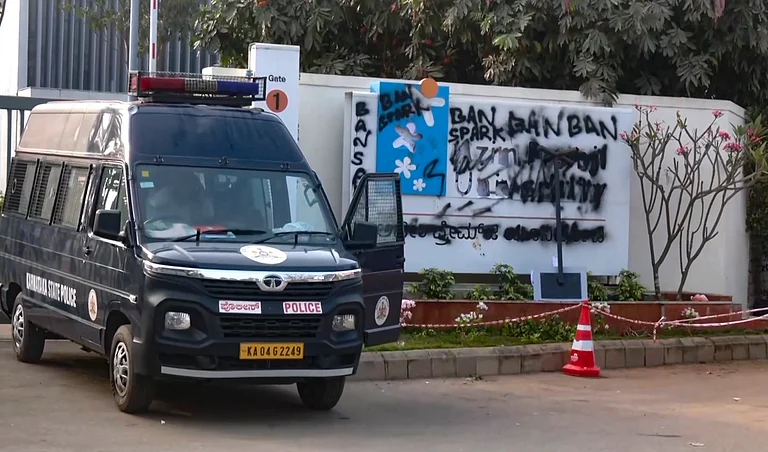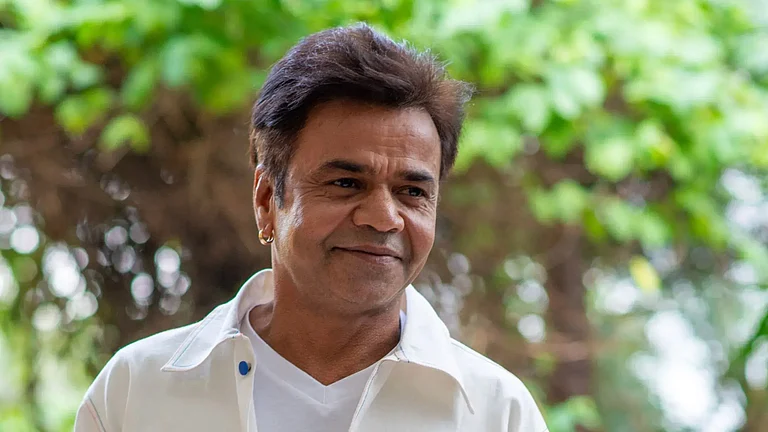On January 25, 2024, the Varanasi district court ordered the Archaeological Survey of India (ASI) report, submitted in a sealed cover on December 18, 2023, to be made public and shared with both involved parties. Notably, the ASI conducted a detailed scientific survey, including excavations, to determine the mosque's historical origins. Additionally, the cleaning of the Wazukhana, supervised by the district magistrate under Supreme Court orders, was recently completed.
The case involves numerous petitions in various courts, with 18 related pleas being heard in Varanasi, alongside the original High Court suit. Originating in 1991, the case experienced a revival in 2020, and the current legal proceedings stem from a 2019 petition seeking an archaeological survey. The fate of the case hinges on the Varanasi court's decision on the maintainability of the suit under the Places of Worship Act, 1991.
Background and Origin
The Gyanvapi Mosque case traces its roots back to 1991 when a petition was initiated, seeking the restoration of the Gyanvapi land to the adjacent Kashi Vishwanath temple. However, in 1997, the Varanasi Civil Court delivered a significant ruling by deeming the suit as non-maintainable under the Places of Worship Act, 1991. This legislation prohibits legal actions that could alter the religious character of a place of worship as it existed on August 15, 1947. Following this initial ruling, both sides involved in the dispute filed revision petitions, intensifying the legal contest.
The case experienced a notable revival in 2020, marking a pivotal moment in its protracted history. The Varanasi civil court decided to reopen the case, citing a Supreme Court order from 2018. The Supreme Court's directive emphasized the necessity for regular rectification of stay orders, prompting the Varanasi court to reconsider the matter. This reopening of the case in 2020 injected new life into the legal proceedings, setting the stage for a renewed examination of the complex issues surrounding the Gyanvapi Mosque.
The trajectory of this case reflects a persistent legal struggle intertwined with historical and religious sensitivities. As it traverses through decades, the Gyanvapi Mosque case continues to be a focal point of legal debates, with each ruling shaping the course of the dispute. The interplay between legal intricacies and the broader cultural and religious context underscores the multifaceted nature of this protracted legal battle, making it a noteworthy and intricate chapter in the legal history of India.
Court Proceedings and Key Events
The legal saga surrounding the Gyanvapi Mosque has unfolded through a series of pivotal court proceedings and events. In 2019, a significant turning point occurred when a petition was submitted, urging an archaeological survey of the Gyanvapi complex. Responding to this plea, the Varanasi civil judge directed the Archaeological Survey of India (ASI) to initiate a comprehensive scientific survey to unveil the historical layers of the contested site. However, the trajectory of the case took a twist as the Allahabad High Court promptly intervened, placing a stay on the survey order and amalgamating this case with the original suit, further complicating the legal landscape.
Another crucial chapter unfolded in 2021 when five Hindu women sought permission for daily prayers at the outer walls of the mosque, setting the stage for a legal confrontation. The Varanasi court, in 2022, became the arena for the hearing of this petition, injecting another layer of complexity into an already intricate legal narrative.
The ASI survey, conducted and concluded on May 16, 2023, marked a significant milestone. According to the findings, a 'Shivling' was purportedly discovered within a reservoir on the mosque complex. However, this claim faced vehement opposition from the Muslim side, underscoring the contentious nature of the archaeological revelations.
Amidst these developments, the legal challenges intensified with the Anjuman Intezamia Masjid Committee questioning the Varanasi court's directives. Citing the Places of Worship Act, 1991, which expressly prohibits alterations to the religious character of a place of worship existing as of August 15, 1947, the Committee challenged the legitimacy of the court's orders, adding a layer of constitutional and statutory complexity to the ongoing legal discourse. This intricate interplay of legal maneuvers, religious sentiments, and historical assertions underscores the multifaceted nature of the Gyanvapi Mosque case, leaving its resolution poised at the intersection of law, history, and communal sensitivities.
Challenges Ahead
The future trajectory of the Gyanvapi Mosque case is fraught with challenges that encompass legal intricacies, public sentiment, communal harmony, and the delicate balance required between legal principles and cultural and religious sensitivities. A pivotal determinant in this complex legal saga is the Varanasi court's impending decision on the suit's maintainability, a decision that hangs in the balance. The Anjuman Islamia Masjid Committee's challenge to the validity of the suit under the Places of Worship Act, 1991 adds a layer of complexity, highlighting the intersection of legal statutes with religious rights.
Recent developments, such as the court's order to make the ASI report public, underscore the significance of transparency and accountability in this intricate legal process. These milestones, including the Varanasi court's decision on maintainability, mark crucial junctures in a case that has spanned decades. As the legal proceedings continue to unfold, the imperative is to navigate the multifaceted dimensions of the dispute, recognizing the diverse perspectives involved while steadfastly upholding the principles of justice. The Gyanvapi Mosque case, with its deep-rooted historical and cultural resonance, remains a poignant reminder of the challenges inherent in adjudicating matters that straddle the intersection of law, history, and faith.






















